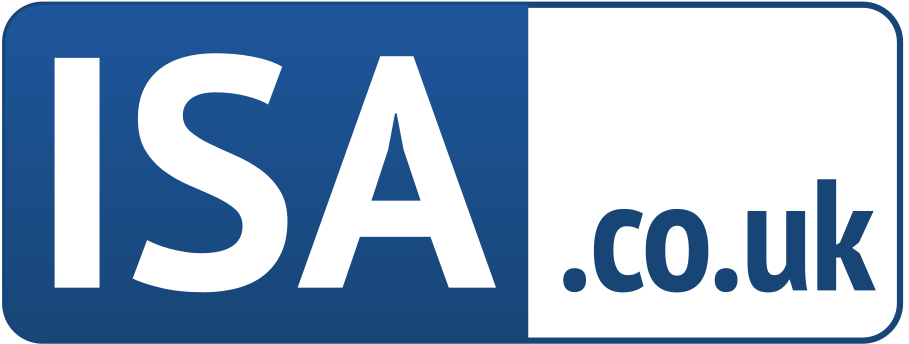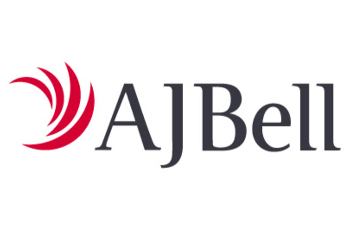Transfer Shares into an ISA
Investment ISAs put your capital at risk & you may get back less than you originally invested
- Fund Choice: Invest in managed portfolios
- Invest From: £500
Good to know: Choose your level of risk from cautious to adventurous and have a plan expertly created and managed for you. Create multiple Plans – including Ethical Plans – with different risk levels. Invest as little or much as you like, add regular payments and top up whenever you like. Withdraw money or transfer out without notice or penalty fees. Wealthify app lets you check how your Plan is performing, manage your transactions and provide investment news and insights. There is a simple Annual Management fee currently no more than 0.6%. The tax treatment of your investment will depend on your individual circumstances and may change in the future. Wealthify is authorised and regulated by the Financial Conduct Authority
Show More- Fund Choice: Invest in UK, US and international shares & funds
- Invest From: £25 pm
Good to know: An award-winning ISA that gives you complete control. The second largest platform in the UK with the widest choice of investment options in the market including funds, investment trusts, ETF’s and more. Open online in less than 10 minutes. Access to expert independent ideas and analysis. Low cost fees and trading. Capital at risk. *Open to new customers opening an ISA or GIA between 1st and 31st July (and existing customers adding an ISA only, so not available to existing customers opening a GIA. No minimum deposit required
Show More- Fund Choice: Invest in UK, US and international shares & funds
- Invest From: £25 pm
Good to know: Invest in over 2,000 funds, shares and more across 25 markets. Invest from £25 per month. Which? Recommended Provider for Investment Platforms 2024. Low-cost online dealing from £1.50. Open your account in minutes from app or website, manage your portfolio on the move. FSCS protected. Capital at risk
- Fund Choice: Invest in UK, US and international shares & funds
- Invest From: £25 pm
Good to know: This award-winning ISA has an extensive range of investment options, including thousands of funds and shares, plus a guidance service to help you find investment ideas. There is a low service fee (typically 0.35%), easy online application process and apps to manage your money on the move. Additional charges apply depending on your choice of investments. Plus, everything is backed by Fidelity’s 50 years of investment experience. Boring Money Best Buy ISA 2023
Show More
Stocks & Shares ISA Transfer Cashback Offer (Terms Apply)
from Hargreaves Lansdown
- Fund Choice: 3,000+ Funds
- Invest From: £25 pm
Why we like it: Choose your own funds or alternatively a ready made portfolio. Market-beating savings and discounts of up to 5.5%. No charge to buy and sell funds. Low, tiered annual charges for holding funds, with a maximum of just 0.45% per annum. Free fund updates and analysis from experienced research team. Invest with a financially secure, FTSE 100 company.
Offer:
Cashback » available now when you transfer (Terms Apply)
Important: The value of your investments can rise as well as fall. You may get back less than you invested. If you’re unsure, we recommend you ask for independent advice.
Show More- Invest From: £10 pm
- Investment Options: Is an insurance based Junior ISA which invests in stocks and shares via a With-Profits pooled fund
Good to know: Your child’s money will be invested through a fund manager & will be invested primarily in stocks and shares, with the aim of achieving higher growth over the long-term than might be available through a cash-based Junior ISA. Open a Junior ISA for your child and get rewarded too. . Capital at risk. Please note: As with all investing, your capital is at risk you may get back less than you have put in. The value of the ISA will depend on the performance of the investments and any bonuses cannot be guaranteed. Additionally, if investment conditions are poor, we may apply a Market Value Reduction (MVR)
Show More- Fund Choice: Experts build your portfolio based on your risk profile
- Invest From: £1,500
Good to know: Answer questions about your goals, financial situation and attitude to risk, and Moneyfarm will recommend the right ISA portfolio for you, built and managed by experts to help your money grow. You’ll always be invested in a portfolio that’s suitable for you, and you can manage this through the Advice Centre. See what you’re invested in, how you’re performing and how much you’re paying anywhere and any time with the Moneyfarm app. Add money to your ISA by setting up a direct debit, investing a lump-sum, or by transferring old ISAs for free. Capital at risk.
Show MoreHow to Transfer Shares into an ISA: Maximise Your Tax-Free Investments
Transferring shares into an ISA (individual savings account) is an intelligent way to make the most of your investments, ensuring they grow in a tax-efficient manner.
What types of ISAs can I transfer shares into?
You can transfer shares into a Stocks and Shares ISA using the Bed and ISA process. This type of ISA is specifically designed for holding a variety of investments, including individual stocks, ETFs, bonds, and funds.
Shares acquired through employee schemes, such as SAYE (Save As You Earn) or SIP (Share Incentive Plan), can also be transferred directly into a Stocks and Shares ISA without the need to sell them first.
It’s important to note that Cash ISAs do not accept direct transfers of shares. If you hold shares and want to benefit from tax-free growth, a Stocks and Shares ISA is the only suitable option for this type of investment, to make the most of the ISA tax benefits.
What is a Bed and ISA?
If you want to transfer shares into an ISA, it’s important to understand the process known as Bed and ISA.
Directly transferring most shares into an ISA is not possible. Instead, you will need to sell the shares outside of the ISA, transfer the cash proceeds into the ISA, and then repurchase the same shares within the ISA.
This way, you benefit from the tax-free wrapper the ISA provides for future growth and income.
Why Bed and ISA?
By selling and repurchasing your shares, you essentially “bed” the shares within the ISA. This process ensures that any future gains or dividends from those shares are free from tax.
Limitations and tax rules
The amount of shares or cash you can move into an ISA account is capped by your annual ISA allowance, which is £20,000 per person for the 2024/25 tax year. Any value exceeding this must be spread over future tax years.
Types of Shares You Can Transfer
When it comes to transferring shares into an ISA, not all shares can be treated the same. The following types of shares are typically involved in the Bed and ISA process:
Employee Shares (SAYE and SIP)
If you hold shares from an employee share scheme like Save As You Earn (SAYE) or a Share Incentive Plan (SIP), you can transfer these directly into an ISA.
You don’t need to sell them first, but they must be moved within 90 days of acquiring them. This is a convenient way to use up your ISA allowance and protect your shares from Capital Gains Tax.
Shares in a General Trading Account
For shares held in a non-ISA trading account, you’ll need to follow the Bed and ISA process. This means selling your shares, moving the proceeds into your ISA, and repurchasing the same shares within the ISA.
Investment Funds and Trusts
You can also transfer unit trusts, exchange-traded funds (ETFs), and investment trusts through the Bed and ISA process. These will be treated similarly to shares, and their tax-free growth within the ISA can significantly boost your long-term returns.
Step-by-Step Guide to Transferring Shares into an ISA
Transferring shares into an ISA is relatively straightforward if you follow the correct steps:
- Check your ISA allowance: Before making any move, ensure you have enough ISA allowance left to cover the value of the shares you want to transfer. Remember, for 2024/25, the allowance is £20,000 per person.
- Sell your shares: Using the Bed and ISA process, sell the shares you currently hold in your general trading account. Be mindful of the timing, as share prices can fluctuate between the sale and repurchase.
- Transfer cash proceeds into your ISA: Once your shares are sold, the proceeds must be transferred into your ISA. This step is crucial to maintain the tax-free benefits of the ISA wrapper.
- Repurchase the shares: After the funds are in your ISA, you can repurchase the same shares or other investments. Keep in mind that the share price may have changed slightly between the time you sold and repurchased.
- Track any CGT liabilities: If the shares you sold outside the ISA have appreciated in value, you may need to account for Capital Gains Tax. However, you’re only liable for CGT if your total annual gains exceed the annual CGT allowance (£6,000 for the 2024/25 tax year).
Benefits of Transferring Shares into an ISA
There are several advantages to moving your shares into an ISA:
- Tax-free growth: Once your shares are in an ISA, all capital gains and dividends are sheltered from tax. This can result in significant savings, especially if you hold high-growth stocks or dividend-paying investments.
- Simplification: Consolidating your shares into an ISA simplifies your portfolio management. All future growth is protected within the tax-free ISA wrapper, and there’s no need to worry about future CGT liabilities.
- Estate planning: Holding shares within an ISA can simplify estate planning. ISAs are now transferable to a spouse or civil partner upon death, making them an attractive option for passing on wealth.
Important Considerations
While transferring shares into an ISA is beneficial, there are some important factors to keep in mind:
ISA Allowance Limit
The £20,000 annual ISA allowance is a strict limit, and you cannot exceed it. If your shares are worth more than this, you will need to spread the Bed and ISA process over multiple tax years.
Potential Trading Costs
When you sell and repurchase shares as part of a Bed and ISA, you may incur trading fees and potentially stamp duty. These costs can eat into your gains, so it’s important to factor them into your decision-making.
Market Timing
Share prices can fluctuate, and there may be a slight difference in price between selling your shares outside the ISA and repurchasing them within the ISA. In a volatile market, this could impact the number of shares you can buy back.
Protect Your Investments with an ISA
Transferring shares into an ISA is a powerful strategy for protecting your investments from tax and simplifying your financial planning.
Whether you’re transferring employee shares or using the Bed and ISA process, moving your assets into an ISA ensures that future growth and income remain tax-free.
To maximise the benefits, make sure to track your ISA allowance and consider any trading fees or tax implications that may arise.
Explore your options today to make the most of your tax-free investment opportunities.
Frequently Asked Questions
Can I transfer shares directly into an ISA without selling them?
No, unless they are employee shares from a SAYE or SIP scheme. For all other shares, you need to use the Bed and ISA process, which involves selling the shares first and then repurchasing them within the ISA.
What happens if I exceed my ISA allowance?
If you transfer more than the £20,000 annual allowance, you may be subject to penalties, and the excess will not benefit from the tax-free ISA wrapper. It’s important to monitor your ISA allowance closely during the Bed and ISA process.
Can I transfer shares between ISAs?
Yes, shares held in one ISA can be transferred to another without impacting your annual allowance. However, this is different from the Bed and ISA process and may involve different rules depending on the providers involved.
Do I need to pay Capital Gains Tax (CGT) when transferring shares into an ISA?
If you transfer shares into an ISA using the Bed and ISA process, you may incur Capital Gains Tax charges on the sale of your shares, but only if the profit from the sale exceeds the annual CGT allowance (£6,000 for 2024/25).
Once the shares are inside the ISA, any future gains are sheltered from CGT, and you won’t owe tax on future profits or dividends.
It’s important to calculate any potential CGT liability before completing the transfer, especially if you’ve held the shares for a long time and they have appreciated significantly in value.






